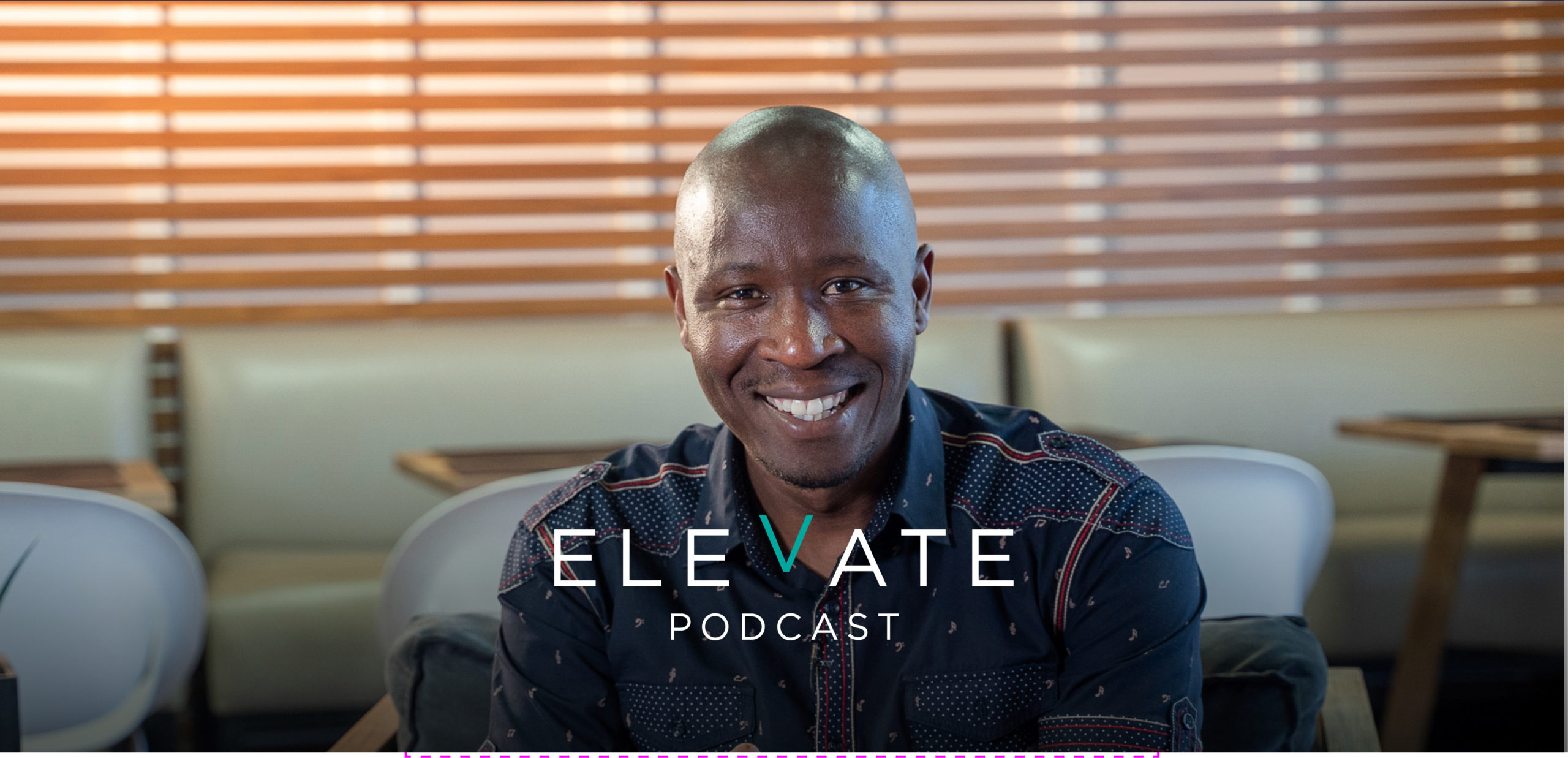The Elevate Leadership podcast is an 8-part podcast series in which Mergon Foundation’s Neil Hart speaks with distinctive leaders on what it takes to lead healthy organisations today. Each episode contains fresh, inspiring insights into how leadership can pave the way for long-lasting organisational health and impact.
In an episode entitled ‘Growing our cultural intelligence’ Neil Hart speaks to author and speaker Afrika Mhlope on the topic of culture and leading cross-cultural teams. Afrika unpacks the complexities of culture and how they shape our beliefs and ultimately determine our behaviour. Here’s what he has to say in this episode of the Elevate Leadership podcast.
Growing your cultural intelligence
By Afrika Mhlophe
What is culture?
What is the difference between beliefs and culture? Though beliefs and culture aren’t the same thing, Afrika notes, they are interlinked. ‘Every cultural system has beliefs within it. Beliefs are the anchors that carry the culture through from one generation to the next,’ he says.
Afrika uses the analogy of a house to represent culture. ‘The foundation of the house is our beliefs – ’, he explains, ‘what people believe to be true of the world, of life, creation, eternity, destiny and purpose. Each cultural system answers three basic philosophical questions in life: ‘Where do I come from? Why am I here? Where am I going?’ How they are answered is determined by what that particular culture believes to be true. Therefore, a person’s behaviour is a result of their beliefs and the foundation of their culture.
The complexity of leading cross-cultural teams
Understanding culture is hugely helpful, especially when it comes to leading cross-cultural teams. Having to lead across cultural lines no doubt adds a level of complexity to how we lead. Cultural clashes are inevitable because people come with different beliefs, worldviews and values. The more that leaders step outside their paradigms and seek to understand these differing views, Afrika notes, the more fruitful their leadership can be.
Letting go of beliefs that are incompatible with our faith
The challenge, Afrika says, is letting go of beliefs that are incompatible with our faith: ‘As Christians, we ultimately want people to understand that they cannot hold a belief on an issue as tight as they should hold their faith on that issue. If we are in the family of Christ, His Kingdom culture needs to override our own culture and we need to turn to Him before we turn to anything else that seems natural in our own culture.’
Often we don’t know what these beliefs are until a key moment occurs such as a trauma or unexpected loss. It’s in these moments, when seeking comfort and solace, that we reveal the true state of our affections and the fundamental beliefs that determine our source of hope. In a cultural context, Afrika says that leaders need to find out what those things are that people are holding onto and why.
‘Look for an opportunity to speak into those things, ask questions and challenge the things that people hold onto, habitually turn to, celebrate, honour or trust in when they say they think God should be the centre,’ he advises. ‘The more difficult the conversation is, the stronger the relationship ought to be. It’s the strength of a relationship that gives power and authority to speak into certain areas.’
Bringing the gospel message into a multicultural environment
It’s dangerous to stay ‘married to the familiar’ – to your way of interpreting life and the world, notes Afrika. What you know of the world is influenced by your own history and culture, and therefore what you know of life is not necessarily true of how others see life.
Diversity adds tremendous richness to a team. Diversity refers not only to racial diversity, but diversity in thinking, perspective, gifts and talents. Being intentional about diversity can be painfully difficult, but, Afrika urges, ‘push through the pain’. As followers of Christ, we know that the Kingdom, by its nature, transcends all things. When Christ gave the commission to go into the whole world and make disciples of all nations, He certainly knew the difficulties that would go with it. But He also knew that the power of the gospel would transcend those issues.
Knowing ourselves by knowing Christ
‘To know who you are, you must know who you are not,’ says Afrika. ‘You discover what is true of you when you remove what is false of you.’ Jesus shows an example of that by identifying who He was before He started his ministry. His ministry never defined what He did. In the beginning of His ministry, there was the word from heaven where God said, ‘this is my beloved Son with whom I’m well pleased, hear Him.’ Jesus ministered from sonship, not from servanthood.
In the same way, he notes, leaders can only lead healthily when they know their identity in Christ. The gospel brings a restoration, not to a certain cultural status, but to the image of Christ. When we find equal and secure footing at the cross, others’ differences do not derail or threaten our leadership – they expand us. When Christ is our ultimate Validator, and not the public platforms on which we serve, then cultural diversity can be warmly welcomed. Humility paves the way for new learning, and we grow together with the gospel as the great leveller.
Listen to the full podcast episode here: https://open.spotify.com/episode/6XGNitcR8pc4nkefxj4Wjt?si=d1b8a7b4de454e8c (also available on all other major podcasting platforms such as Apple, Google and Overcast)
Watch the episode on YouTube here: https://www.youtube.com/watch?v=reW2kI6nOu8&t=34s
All rights reserved. Copyright 2018 Mergon Group.
